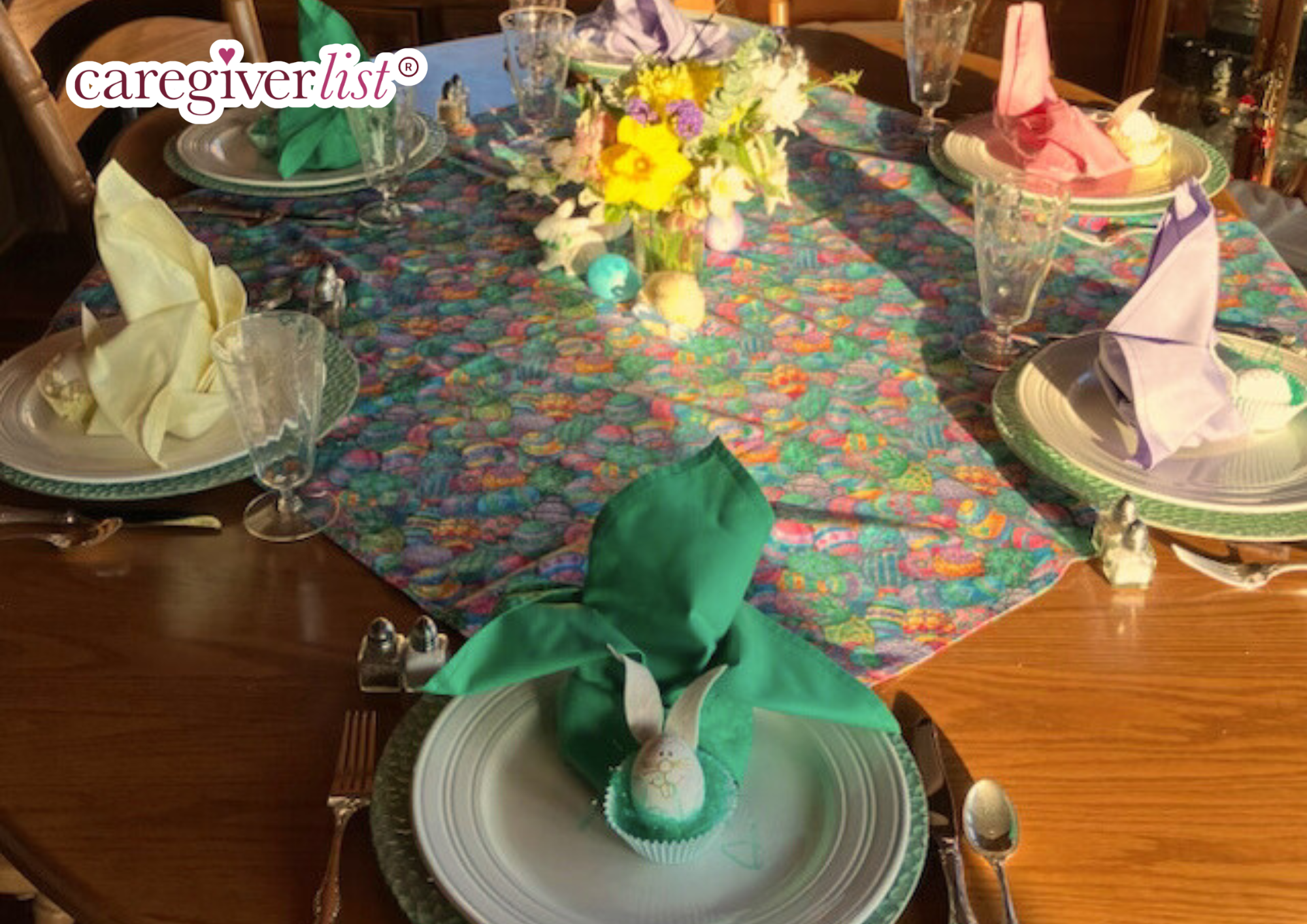For Springtime brings the opportunity to celebrate growth with the flowers sprouting out of the ground and holidays for rebirth, such as Easter, along with celebrations for the Spring Equinox and Passover. As always, these celebrations involve sitting down for a nice meal which provides the opportunity to create a special table setting with your client as a fun activity you and your senior care clients may do together. You’ll see how a special table will bring a smile to everyone’s face.
Involve Your Care Client
Start by letting your clients or loved ones help with small tasks. Give them choices so they feel included:
- Ask what color napkins or plates they like
- Let them help pick a centerpiece (flowers, Easter eggs, or something simple from around the house)
- Invite them to fold napkins: look up different ways to fold the napkins to be creative
- Write place-setting cards and research different ideas for place cards
These small jobs can feel meaningful. They give a sense of control and pride, and help build connection.
Set the Table for Comfort
- Make sure they have everything they need: glasses, dentures, hearing aids
- Place the plate where they can see it best (on their stronger side). For clients with dementia, research says 35% of seniors will eat more food when their meal is served on a blue plate.
- Put utensils and drinks on the side they use most (right-handed or left-handed)
- Cut food into small pieces ahead of time if needed
- Open any lids or containers so they don’t struggle during the meal
- Use straws or cups with lids if it makes drinking easier
If eating with a spoon is hard, you can even serve soup in a cup they can sip.
Reduce Distractions
Turn off the TV or radio. Too much noise can make eating harder, especially for someone with dementia. During the meal, keep talking simple and gentle. If conversation seems to confuse or distract them, it’s okay to eat in silence and talk more after.
Help with Good Posture
- Sit them upright with back supported
- Use pillows if needed to help them sit straight
- Keep their head slightly forward, not tilted back (this helps prevent choking)
- Stay beside them, not behind—so you can make eye contact and help if needed
After the meal, help them stay seated for a while to help with digestion.
Make Meals Fun and Positive
- Play soft music before or after the meal
- Share stories about past holidays or favorite foods
- Give praise: “You did a great job helping,” or “I love how you folded the napkins.”
If they like dessert, bring it out after the meal as something to look forward to. You can also plan a “theme” meal now and then, like breakfast for dinner, or a meal based on a favorite holiday memory.
Keep the Routine
After the meal, tidy up together if they are able. Drying dishes or wiping the table can help them stay involved and feel useful. Use safe, lightweight plates like melamine so there’s no worry if something drops.







